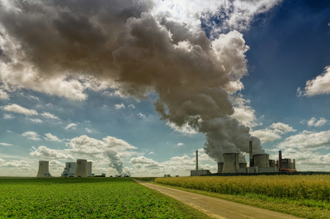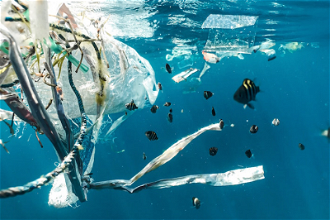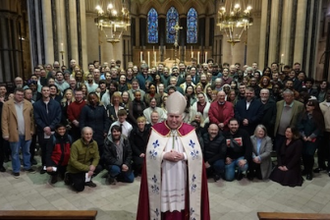Pollution undermines our health and reduces life expectancy

Photo by Johannes Plenio on Unsplash
Over the past few years there has been much talk, especially by scientists and planners, that climate change and the destruction of species are causing all kinds of damage to humans and to the planet.
It is significant that in laying out the various elements of the environmental crisis in his encyclical Laudato Si': On Care for our Common Home, Pope Francis begins Chapter 2 with reflections on pollution. In paragraph 20 he writes: "Some forms of pollution are part of people's daily experience. Exposure to atmospheric pollutants produces a broad spectrum of health hazards, especially for the poor. People take sick, for example, from high levels of smoke used in cooking and heating. There is also pollution that affects everyone, caused by transport and industrial fumes."
The Health Effects Institute is a nonprofit corporation chartered in 1980 to provide high-quality and relevant information on the health effects of air pollution. A report published in 2018 estimated that 95% of people are breathing poor air globally. Globally, it is now considered the fourth cause of deaths after high blood pressure, diet, and smoking. In many developed countries efforts have been made in recent years to clean up the air. The Health Effects Institute reckons that one in four deaths in India and one in five deaths in China are due to air pollution. The good news is that China is moving aggressively to cut coal use and India has taken steps to address indoor air pollution with liquefied petroleum gas and electrification for cooking and heating homes.
In 2022, the Irish Environmental Protection Agency (EPA), published a report on air pollution. It states that long-term exposure to low levels of air pollution increases the risk of cardiovascular disease, stroke, cancer, and poor mental health.
It made the point that this fine particulate matter, which often we cannot see is very dangerous. PM2.5 can enter the bloodstream and, in that way, affects every organ in the body. PM2.5 is generated by burning coal, turf, and wet wood in our homes, especially in winter. This has led to an increase of the number of people suffering from Asthma. According to the Asthma Society of Ireland, a huge percentage of Irish society - more than 380,000 people - suffer from that disease. Financially, Asthma costs the Irish State €472 million each year.
The Irish Health Foundation and the British Heart Foundations have found that 1,600 deaths a year are now caused in Ireland by a combination of burning solid fuel and heavy traffic. The health costs are now over €2 billion. Sadly, for those who live in cities like Dublin, Cork, Limerick, and Waterford, the situation is worse.
Dr Colm Bryne, a consultant geriatrician at the Mater Hospital in Dublin, is convinced that there is a link between the poor air quality in Dublin and strokes especially during the winter. In his study of strokes, he and his team at the Royal College of Surgeons found that there was a significant rise in stroke hospitalisations in Dublin on days when air quality was poor.
The sale of smoking coal was phased out by the Irish government in May 2021. It was banned completely on 1 May 2023, to combat air pollution.
Research in Galway found that burning turf in the town of Birr, County Offaly created a great amount of PM2.5 and damaging air pollution. This research made it very clear that log stoves pose a threat to air quality and need to be banned even though many people in the countryside enjoy using them, especially in the winter.
By presenting Irish statistics in this negative way, we might think that air quality is very poor in Ireland. In fact, in comparison with other countries it is pretty good. Last year, Ireland did meet the EU standards for air quality, but it didn't meet the more stringent guidelines of World Health Organisation and doesn't intend to meet them until 2035, unless serious pressure comes from the citizens.
In the future, we will have to heat and cook without using fossil fuels. We must ensure that the buildings where we work and live are properly ventilated. We are challenged to walk, cycle, and take public transport when we want to travel.
Fr Sean McDonagh is a Columban eco-theologian, living in Ireland.


















